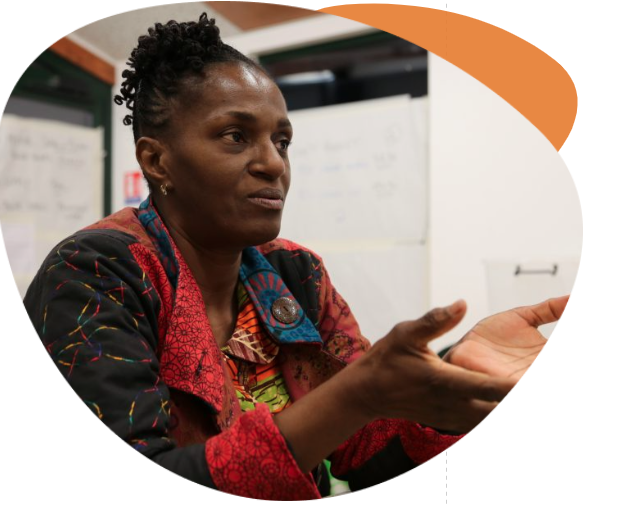La diversité et la négociation humanitaire
DOI :
https://doi.org/10.21153/thl2021volno0art1070Mots-clés :
Diversity, humanitarian negotiation, identity characteristicsRésumé
Le secteur humanitaire a continuellement poursuivi des efforts pour développer les capacités de négociation parmi le personnel humanitaire. Néanmoins, les questions autour du profil du négociateur humanitaire et comment il pourrait influencer les résultats des négociations ont été, au mieux, à l’arrière-plan des débats en cours dans la profession, ou, au pire, complètement ignorées. Ce document de travail cherche à combler cette lacune. En se fondant sur des entretiens semi-directifs et des réponses de questionnaire, il évalue le rôle des caractéristiques personnelles dans les processus de négociation humanitaire. Comme les résultats des entretiens et du questionnaire le suggèrent, le profil d’un négociateur, y compris ses caractéristiques personnelles et ses expériences professionnelles passées, peuvent façonner la manière dont ses interlocuteurs le perçoivent ; entretenir les préjugés et les stéréotypes des humanitaires eux-mêmes envers leurs interlocuteurs ; et engendrer des dynamiques organisationnelles internes problématiques, avec les organisations humanitaires cherchant à promouvoir la diversité et à encourager l’inclusion et l’appartenance au sein de leur personnel.
Métriques
Téléchargements
Références
Adler R (2005) ‘Flawed thinking: addressing decision biases in negotiation’, Ohio State Journal on Dispute Resolution 20(3): 683–774.
Blackney H et al. (2019) ‘Data on diversity: humanitarian leadership under the spotlight’, Humanitarian Advisory Group, accessed 15 February 2021.
Campbell L, Knox Clarke P (2018) ‘Making operational decisions in humanitarian response: a literature review’, ALNAP, accessed 15 February 2021.
Centre of Competence on Humanitarian Negotiation (2016) ‘Annual meeting of frontline humanitarian negotiators’, accessed 15 February 2021.
—(2017) ‘Second annual meeting of frontline humanitarian negotiators’, accessed 15 February 2021.
—(2018a) ‘Engaging with communities on the frontlines: 3rd annual meeting of frontline humanitarian negotiators’, accessed 15 February 2021.
—(2018b) ‘CCHN field manual on frontline humanitarian negotiation, accessed 15 February 2021.
—(n.d.) ‘About the centre’, accessed 15 February 2021.
Du Pasquier F (2016) ‘Gender diversity dynamics in humanitarian negotiations: the International Committee of the Red Cross as a case study on the frontlines of armed conflicts’, Working Paper, Harvard Humanitarian Initiative, accessed 15 February 2021.
EISF (European Interagency Security Forum) (2018) ‘Managing the security of aid workers with diverse profiles’, accessed 15 February 2021.
Grace R et al. (2015) ‘Understanding humanitarian negotiation: five analytical approaches’, Harvard Humanitarian Initiative, accessed 15 February 2021.
Grace R (2020) ‘The humanitarian as negotiator: developing capacity across the aid sector’, Negotiation Journal 36(1):13–41.
Handicap International (n.d.) ‘Charter on inclusion of persons with disabilities in humanitarian action: update on progress since the World Humanitarian Summit’, accessed 15 February 2021.
Mancini-Griffoli D, Picot A (2004) ‘Humanitarian negotiation: a handbook for securing access, assistance and protection for civilians in armed conflict’, Centre for Humanitarian Dialogue, accessed 15 February 2021.
Mazurana D and Donnelly P (2017) ‘Stop the sexual assault against humanitarian and development aid workers’, Feinstein International Center, accessed 15 February 2021.
Mc Hugh G, Bessler M (2006) ‘Humanitarian negotiations with armed groups: a manual for practitioners’, United Nations, accessed 15 February 2021.
Mercy Corps (2018) ‘Playbook: negotiating for humanitarian access’, accessed 15 February 2021.
Mello AL, Delise LA (2015) ‘Cognitive diversity to team outcomes: the roles of cohesion and conflict management’, Small Group Research 46(2): 204–226.
Miller CC, Burke LM, and Glick WH (1998) ‘Cognitive diversity among upper-echelon executives: implications for strategic decision processes’, Strategic Management Journal 19: 39–58.
Mohammed S, Ringseis E (2001) ‘Cognitive diversity and consensus in group decision making: the role of inputs, processes, and outcomes’, Organizational Behavior and Human Decision Processes 85(2): 310–335.
Olson BJ, Parayitam S, Bao Y (2007) ‘Strategic decision making: the effects of cognitive diversity, conflict, and trust on decision outcomes’, Journal of Management 33(2): 196–222.
Pottier J (2006) ‘Roadblock ethnography: negotiating humanitarian access in Ituri, Eastern DR Conglo 1999–2004’, Africa 76(2): 151–179.
Shore et al. (2011) ‘Inclusion and diversity in work groups: a review and model for future research’, Journal of Management37(4): 1262–1289.
Slim H (2003) ‘Marketing humanitarian space: argument and method in humanitarian persuasion’, Humanitarian Negotiation Network, Centre on Humanitarian Dialogue, accessed 15 February 2021.
van Knippenberg D, De Dreu CKW, Homan AC (2004) ‘Work group diversity and group performance: an integrative model and research agenda’, Journal of Applied Psychology 89(6): 1008–1022.
Varshney A (2003) Ethnic conflict and civic life: Hindus and Muslims in India, Yale University Press, New Haven.







